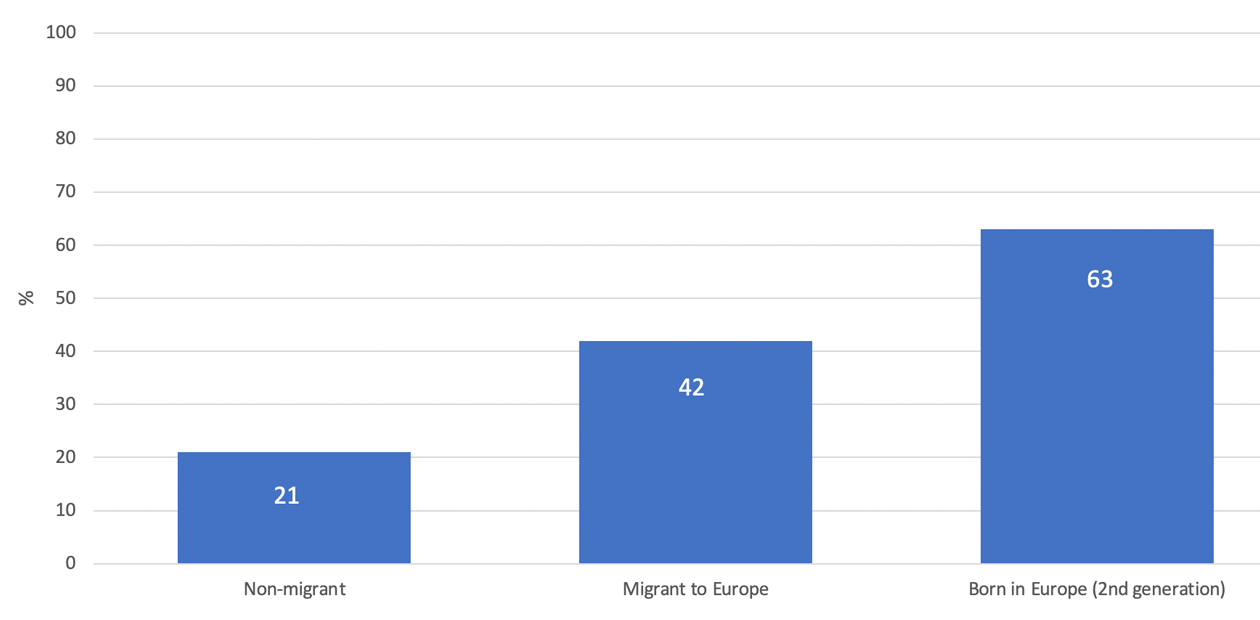When compared to majority women in the European destination countries, migrant women have lower employment likelihoods. However, to reveal the impact of migration on women’s employment, migrant women need to be compared to those remaining in the origin regions and across generations. This study is the first to fill this gap by integrating migration, integration and employment theories into a dissimilation-from-origins and across-generations perspective. We test the hypothesis that migration to more welfare-state based and liberal contexts increase women’s employment likelihood among migrants and the second generation. The large-scale 2000 Families data (Guveli et al. 2016 ) enable a unique comparison of Turkish international migrants, including Turkish-origin women born in Europe, and their non-migrant counterparts from the same regions in Turkey and even the same families. Furthermore, we theorize and test whether differences in employment are explained by differences in family composition, education, religiosity, and cultural attitudes. We find migration leads to a higher likelihood of paid employment for second generation, and international migrant women, in that order (Figure 1). Education and religiosity are the main explanatory factors for differences between non-migrants and the international migrants, including the second generation. Parenthood, while explaining differences between migrant and destination ‘native’ women, hardly explains differences between migrant women and their non-migrant counterparts. Overall, we find strong support for the hypothesis that migration increases women’s employment.
Figure 1: Share of employment among non-migrant women in Turkey, migrant women who moved to Europe and Turkish origin women who were born in Europe (second generation)

Source: 2000 Families dataset
Guveli, Ayse, Harry B. G. Ganzeboom, Helen Baykara-Krumme, Sait Bayrakdar, Sebnem Eroglu, Bulent Hamutci, Bernhard Nauck, Lucinda Platt, and Efe Kerem Sözeri. 2016. 2000 Families: Migration Histories of Turks in Europe. GESIS Data Archive, Cologne. ZA5957 Data file
